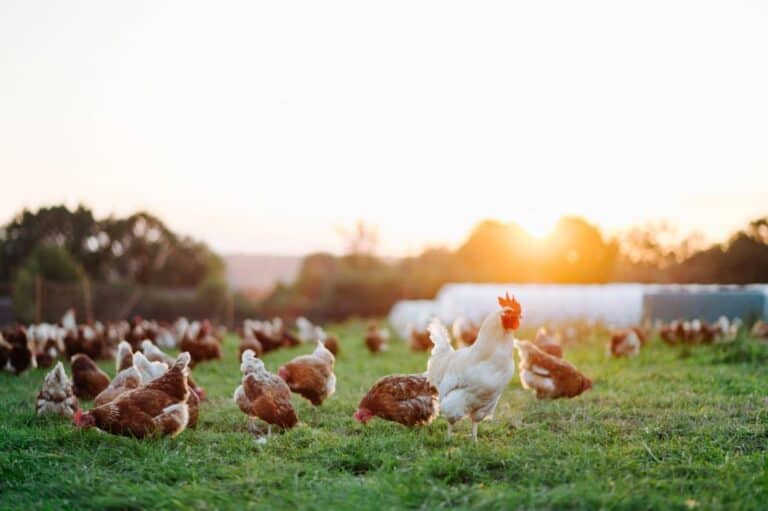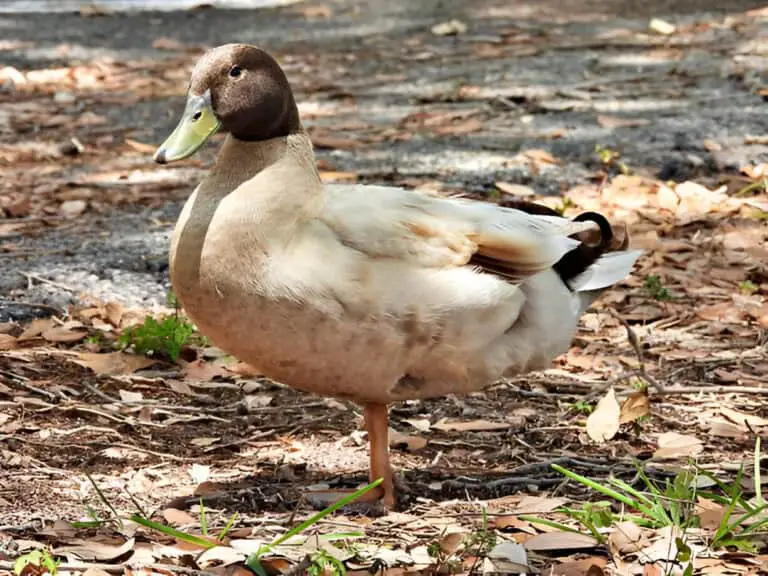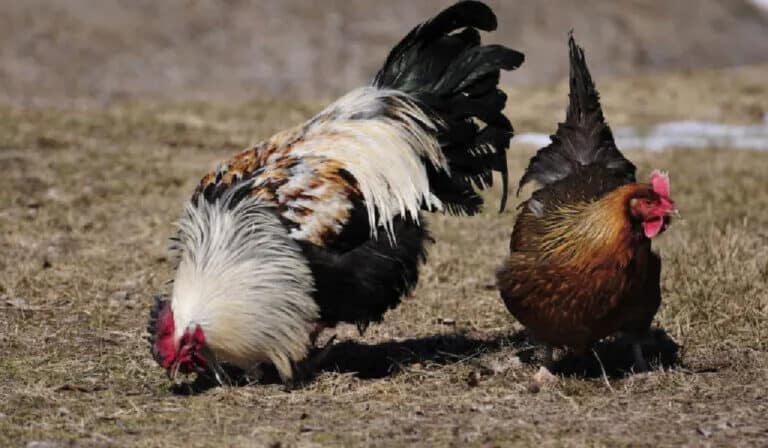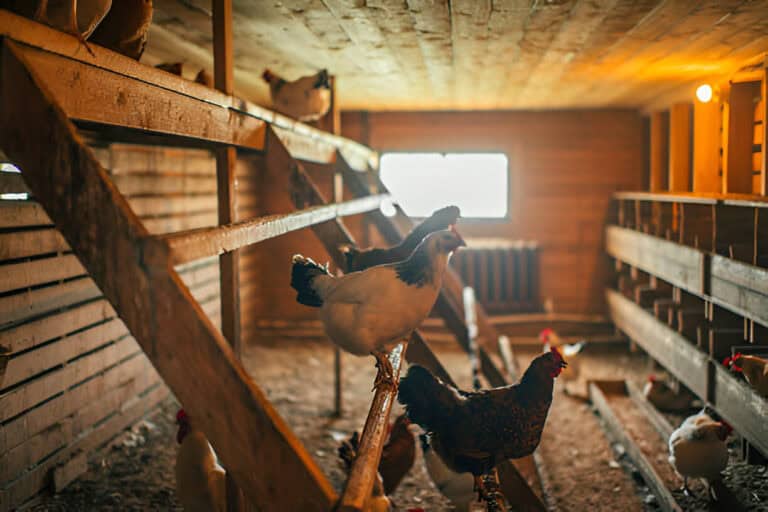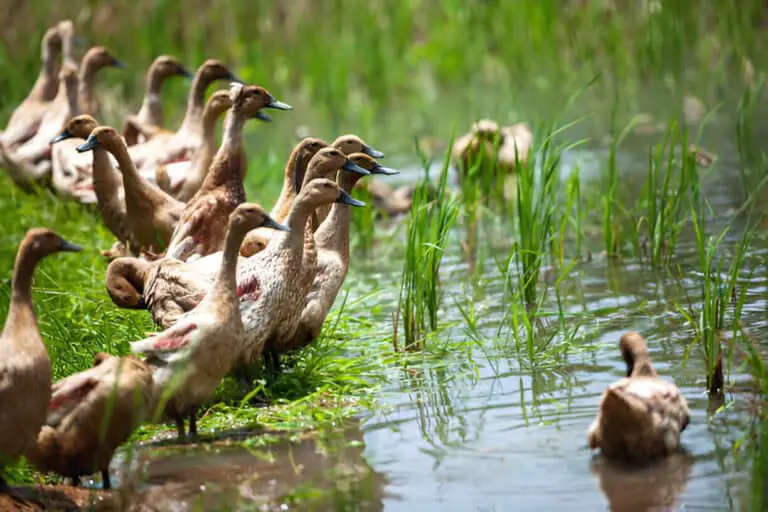5 Surprising Reasons Your Duck Stopped Laying Eggs (And How to Fix It)
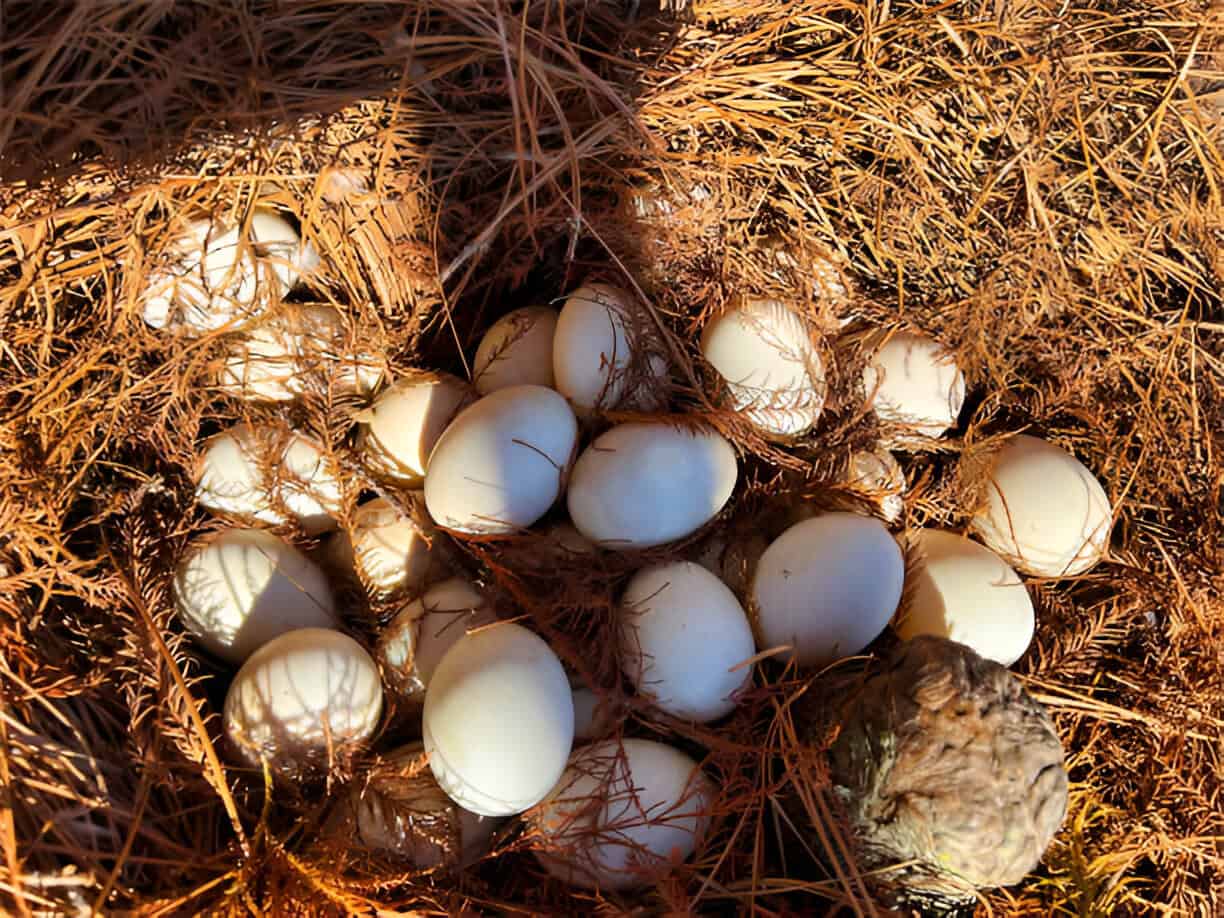
I remember the first time my ducks stopped laying eggs. One day I was out in the yard, gathering yolky treasures like it was a backyard Easter hunt—those rich, golden duck eggs tucked in straw like little gifts. But the next day? Nothing. Just scattered feathers, some puzzled quacking, and a whole lot of me scratching my head.
If you’ve ever stared into an empty nesting box wondering where all the eggs disappeared to, trust me, you’re not alone. Ducks aren’t machines, and when something’s off in their world, they have a funny way of letting you know—mainly by going silent on the egg front.
But what actually causes these feathered ladies to slam the brakes on production? Is it the weather? Their diet? A neighborhood raccoon on the prowl? Or could it be something as sneaky as stress from a new flock member? Before you start panicking or thinking you’ve failed as a backyard duck keeper, let’s dig into the mystery.
In this post, we’re cracking open the five most surprising reasons your ducks may have stopped laying eggs—and more importantly, how to fix it. Whether you’re a new duck parent or a seasoned homesteader, these insights could be the key to getting those nesting boxes brimming again. Ready to bring your backyard bounty back to life? Let’s get started.
So here are 5 reasons why Duck Stopped Laying Eggs
1. Seasonal Slowdown: When Nature Calls It Quits
I used to think ducks laid year-round like clockwork. Spoiler alert: they don’t. When the days grow shorter and the chill creeps in, ducks take the cue from Mother Nature to wind down production. They’re solar-powered, after all.
Why It Happens:
- Ducks need about 14–16 hours of daylight to keep laying regularly.
- As daylight decreases in fall and winter, their biological rhythm tells them to conserve energy. This is a duck egg-laying seasons are off for a while.
- Cold weather + less food = time to rest, not reproduce.
How to Fix It:
- Add artificial light to extend “daylight” hours in the coop. A simple timer and a soft LED bulb can mimic those sunny vibes.
- Keep the light consistent. Sudden changes confuse their internal clock.
- Make sure your flock has shelter from harsh winds and snow so their bodies don’t go into full hibernation mode.
📝 Pro Tip: Don’t go overboard with light. Give them a break in winter to reset and recharge.
2. Molting Mayhem: Feathers First, Eggs Later
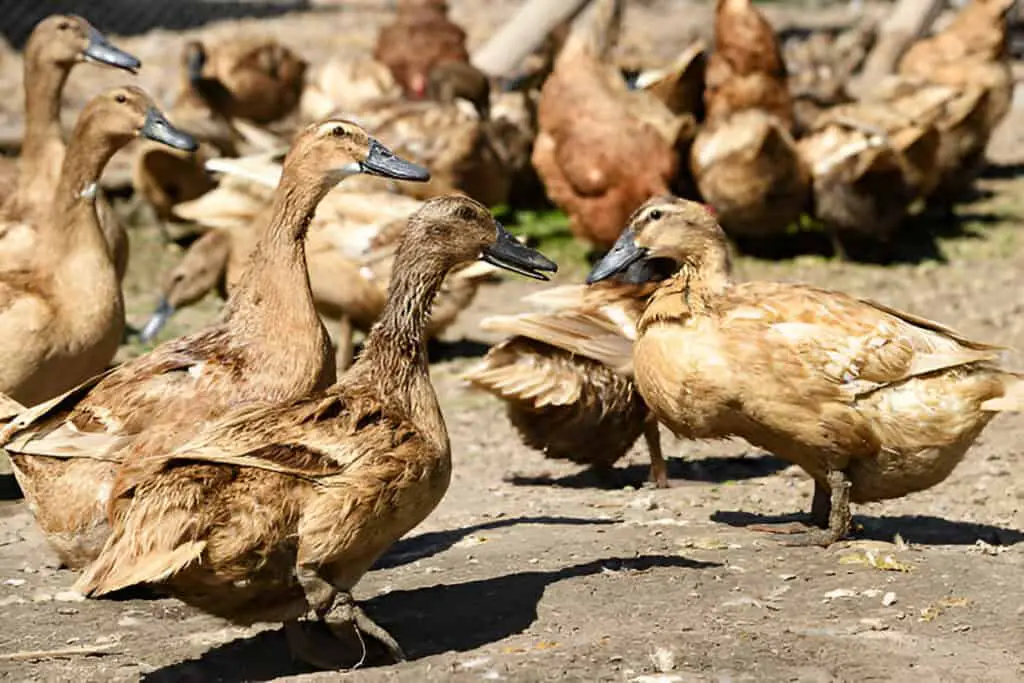
Have your ducks started dropping feathers like confetti at a New Year’s party? Welcome to molting season. Molting is like a spa day for ducks, but instead of cucumber masks, they’re shedding old feathers and growing new ones.
Symptoms of a Molting Duck:
- Patchy or dull feathers
- Increased preening
- Cranky or lethargic behavior
During this time, their bodies redirect protein and energy toward feather regrowth. Laying eggs? Not a priority.
How to Help:
- Boost their protein intake. Swap regular feed for a layer feed with 18–20% protein or add snacks like:
- Mealworms
- Scrambled eggs (yes, really)
- Sunflower seeds
- Mealworms
- Minimize stress. Keep their routine predictable and avoid introducing new flock members.
| Feed Add-In | Benefits |
| Dried mealworms | High protein boost |
| Black oil sunflower seeds | Healthy fats and energy |
| Brewer’s yeast | Supports feather health |
Molting usually lasts 6–12 weeks, so hang tight. Their egg engine will rev back up once the new plumage is in place.
3. Broody Behavior: Duck Drama on the Nest
Let me tell you—when one of my ducks went broody, she turned into a dragon with feathers. Hissing, puffing, guarding invisible eggs like her life depended on it. A broody duck’s hormones trick her into thinking she’s hatching a clutch—even if there’s not a single egg under her!
Signs of a Broody Duck:
- Sitting on an empty nest
- Refusing to leave the box
- Growling or biting when approached
What to Do:
- Break the cycle by removing her from the nest repeatedly.
- Close off nesting boxes for a few days if you can.
- Add distractions like a shallow kiddie pool or forage time outside.
Broody ducks won’t lay until they snap out of it, so the quicker you intervene, the sooner the egg machine kicks back into gear.
| Read on: Can Ducks Lay Eggs Without a Mate? |
4. Nutritional Gaps: Empty Bowl, Empty Nest
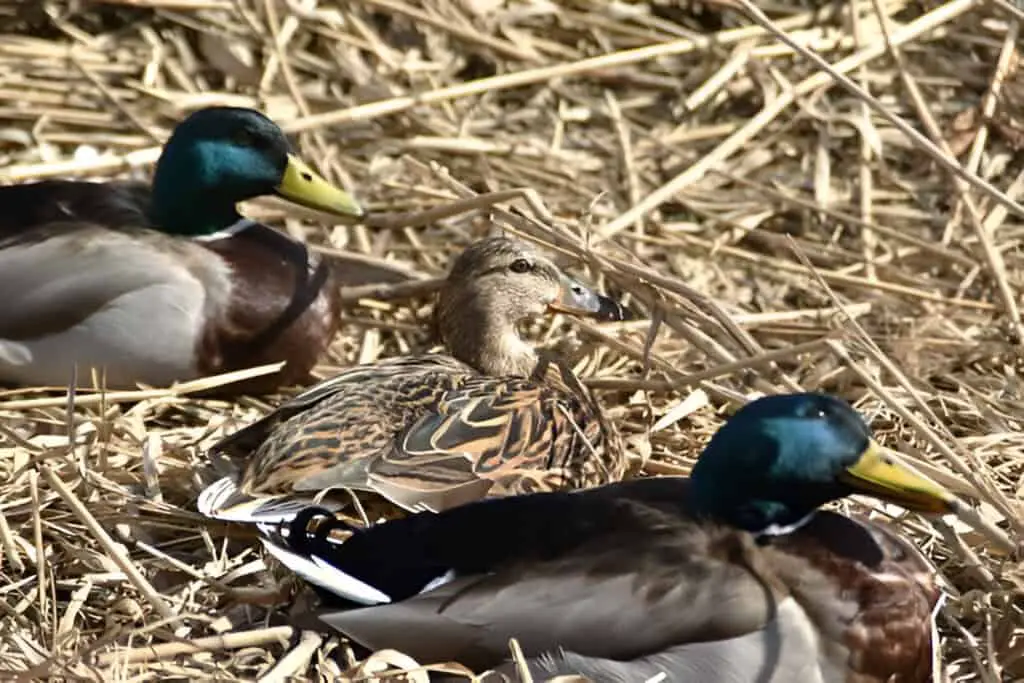
Ducks aren’t picky eaters, but even they can’t lay good eggs on junk food. Think of laying like baking—if the ingredients aren’t right, the result flops. A poorly balanced diet is one of the sneakiest culprits behind egg-laying slumps.
Key Nutrients Ducks Need:
- Calcium for strong shells
- Protein for yolk and white production
- Vitamin D to help absorb calcium
If they’re free-ranging too much without supplemental feed, they may be filling up on grass and bugs that lack what they need.
Fix the Feed:
- Offer layer pellets with 16–18% protein and added calcium.
- Crushed oyster shell on the side lets ducks self-regulate their calcium intake.
- Add fresh greens, cracked corn (in moderation), and clean water daily.
| Duck Feed Must-Haves | Why It Matters |
| Layer pellets | Complete daily nutrition |
| Oyster shell supplement | Strong, healthy eggshells |
| Grit (if not free-ranging) | Aids digestion |
Feeding them right is like tuning an instrument. Hit the right notes, and you’ll hear the hum of steady egg-laying soon.
5. Stress and Predator Pressure: The Silent Egg Killer
You wouldn’t perform well with someone rattling your doorknob at midnight—and neither do ducks. Stress can slam the brakes on egg production faster than a hawk shadowing the coop. Predators (even just the scent), loud noises, overcrowding, and bullying within the flock all send cortisol levels soaring.
Common Stressors:
- Night-time visits from raccoons or possums
- New animals in or near the coop
- Not enough nesting boxes (aim for 1 per 3 ducks)
- Rough handling or changes in routine
How to Soothe a Stressed Flock:
- Secure the coop like Fort Knox—tighten latches, add hardware cloth, and cover any gaps.
- Give them quiet, private space to lay—dim corners or curtained boxes help.
- Keep handling gentle and consistent.
- Avoid overcrowding; ducks need room to waddle and flap.
Once your ducks feel safe and secure, they’ll return to their usual schedule.
Quick Fix Table: Diagnose and Act
| Problem Area | Symptoms | Fix It With… |
| Shorter Days | Fewer eggs in fall/winter | Add artificial light |
| Molting Season | Feathers everywhere, no eggs | High-protein feed and low stress |
| Broodiness | Nest-sitting, aggression | Remove duck, block nest access |
| Poor Diet | Thin shells, no laying | Layer feed, oyster shell |
| Stress or Fear | Skittish behavior, egg drop | Predator-proofing, calm environment |
The Role of Breeds in Egg Production
Not all ducks lay eggs equally—some breeds are better at it than others. If your goal is to enjoy a steady supply of rich, flavorful duck eggs, the breed you choose makes a big difference. Certain ducks are naturally more productive and consistent layers.
Here’s a quick look at popular duck breeds and their average egg production:
| Duck Breed | Eggs per Year | Temperament |
| Khaki Campbell | 250–300 | Friendly, active |
| Indian Runner | 250–300 | Upright, energetic |
| Pekin | 125–200 | Calm, fast-growing |
| Muscovy | 60–120 | Quiet, independent |
When choosing a breed, think about your goals. Do you want daily eggs, or are you also raising ducks for meat or aesthetics? For high egg output, Khaki Campbells and Indian Runners are top picks. If you prefer dual-purpose or quieter ducks, Pekins or Muscovies may be better suited.
Final Thoughts: Patience, Grasshopper
Ducks are quirky, opinionated, and sometimes downright mysterious. But with a little patience, some problem-solving, and a dash of intuition, you can bring your flock back into egg-laying harmony. I’ve learned not to panic at the first empty nest—sometimes they just need a break, a protein bar, or a little peace and quiet.
Every duck is different. Some will lay like clockwork, while others march to the beat of their own webbed feet. Keep a close eye, listen to their body language, and trust your gut. Your ducks aren’t broken—they’re just telling you something’s up. Listen well, act smart, and soon enough, the eggs will come rolling in like clockwork.

